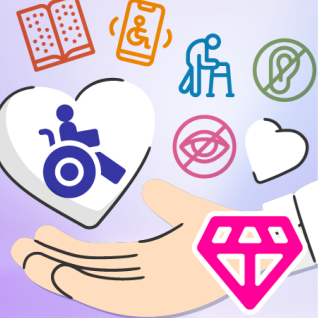Welcome to Disability Inclusive Disaster Risk Reduction (DIDRR), where involvement of the whole community is key. At the United Nations Economic and Social Commission for Asia and the Pacific (UNESCAP), we’re committed to empowering persons with disabilities throughout all phases of disaster planning, implementation, and recovery. Our motto is “Nothing about us, without us.”
Our goal is to equip governments with the tools to integrate disability rights and inclusion into their disaster risk reduction (DRR) programmes. Through the collaborative efforts of our Social Development and ICT & Disaster Risk Reduction Divisions, ESCAP proudly presents two comprehensive e-learning courses on DiDRR, with gender considerations mainstreamed.
These courses are primarily aimed at disaster risk reduction policymakers and professionals at central and local levels providing invaluable insights. But we extend our invitation to disability policymakers, organizations of persons with disabilities (OPDs), advocates, and all parties championing DiDRR.
Other stakeholders such as disability policymakers, organizations of persons with disabilities (OPDs), disability advocates and other relevant parties promoting DiDRR are all welcome to take the courses.
Let’s delve into the courses!
Courses
Each module is packed with engaging content, from infographics to quizzes, designed to enhance understanding and application. Upon completion, you will receive a certificate from UNESCAP.
But our commitment does not stop there. Since 2021, ESCAP has been implementing a project on, “Facilitating innovative action on gender-responsive disability-inclusive disaster risk reduction policies and programmes in Asia and the Pacific.” Partnering with Lao PDR, Nepal, Pakistan, and the Philippines, we are tailoring e-learning tools to address local contexts and perspectives in these respective countries.
For more information on these individual country briefs, please explore the following links:
Note: these have been finalized without any formal editing.
Join us in shaping inclusive disaster risk reduction policies and practices. Together, let’s work together to ensure that no one will be left behind in emergency preparedness and disaster risk management, as well as in the journey of resilient and sustainable development!
Additional Resources




